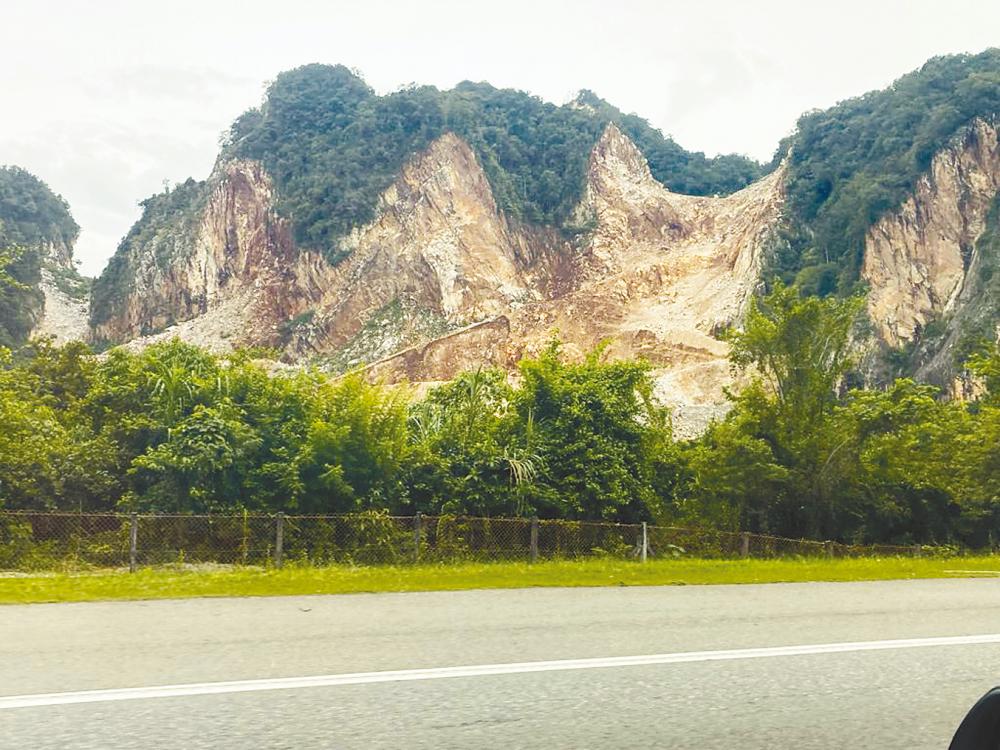I AM writing not as an activist or an environmental expert, but as a concerned individual who recently traversed the routes to and from Penang, only to witness the distressing consequences of environmental violations unfolding before my eyes.
The indiscriminate destruction of Malaysia’s natural wonders, including mountains, hills and forests, has left an indelible mark on my conscience, and ignited a fervent need to address the urgent concerns we face in the name of progress.
The loss of wildlife, including the long-tailed macaques, Asian palm civets, owls and spider monkeys, is heart-wrenching. These innocent beings, displaced and driven to navigate highways in search of sustenance due to the demolition of their habitats, serve as poignant reminders of the heavy toll our actions inflict on the environment and its inhabitants.
The landscapes, once pristine, now bear the scars of fragmentation and dissipation, sacrificed for the pursuit of minerals, housing and commercial developments.
The hills that are being fracked and flattened for resources are not only unsightly but pose significant environmental risks, with the looming threat of landslides that could wreak havoc on nature and communities.
Equally troubling is the reckless felling of trees. Not only do trees play an indispensable role as commodities, but are life-givers as well. They are essential carbon sinks, converting carbon dioxide into life-enabling oxygen, and helping to regulate our climate.
The barren stretches of red soil lining the highways, devoid of these life-sustaining guardians, serve as stark reminders of the urgent need to reconsider our approach to development.
In the spirit of empathy and shared responsibility, I urge the authorities to consider implementing eco-bridges. These bridges can act as lifelines, protecting and reconnecting the remaining wildlife habitats, and fostering a sense of hope in the face of adversity.
Additionally, a thoughtful review of development practices is paramount to ensure a harmonious balance between progress and environmental preservation.
The Sustainable Development Goals (SDGs), to which Malaysia is committed, are now at risk of being compromised.
The violations are not just statistics but tangible threats to our collective well-being:
Good Health and well-being (Goal 3): The lack of carbon sinks leads to a dearth of filtered air, contributing to respiratory diseases and compromising the health of our population;
Affordable and clean energy (Goal 7): The unbridled destruction of nature makes achieving clean and sustainable energy sources nearly impossible as the demand for energy-intensive cooling solutions rises;
Sustainable cities and communities (Goal 11): Catastrophes, such as landslides and flash floods, become inevitable as mountains and hills are recklessly fracked and flattened, undermining the development of sustainable cities and communities;
Climate action (Goal 13): Uncontrolled development encroaches on forest areas and disrupts the earth’s natural equilibrium, making meaningful climate action unattainable; and
Life on land (Goal 15): The ongoing environmental degradation is a stark contradiction to the SDG’s objective of protecting, restoring and promoting the sustainable use of terrestrial ecosystems, managing forests sustainably, combatting desertification and halting biodiversity loss.
Malaysia now stands at a critical juncture, where unchecked urban development and economic pursuits threaten its natural heritage and compromise its commitment to international sustainable development goals.
Urgent measures, including the implementation of eco-bridges, sustainable land management practices and a re-evaluation of development priorities, are needed to steer the country back towards a path of environmental stewardship and responsible progress.
The time to act is now, for the sake of Malaysia’s unique biodiversity and the global commitment to a sustainable future. In our collective hands lie the power to shape a more compassionate and harmonious world.
Suzianah Nhazzla Ismail
Shah Alam









